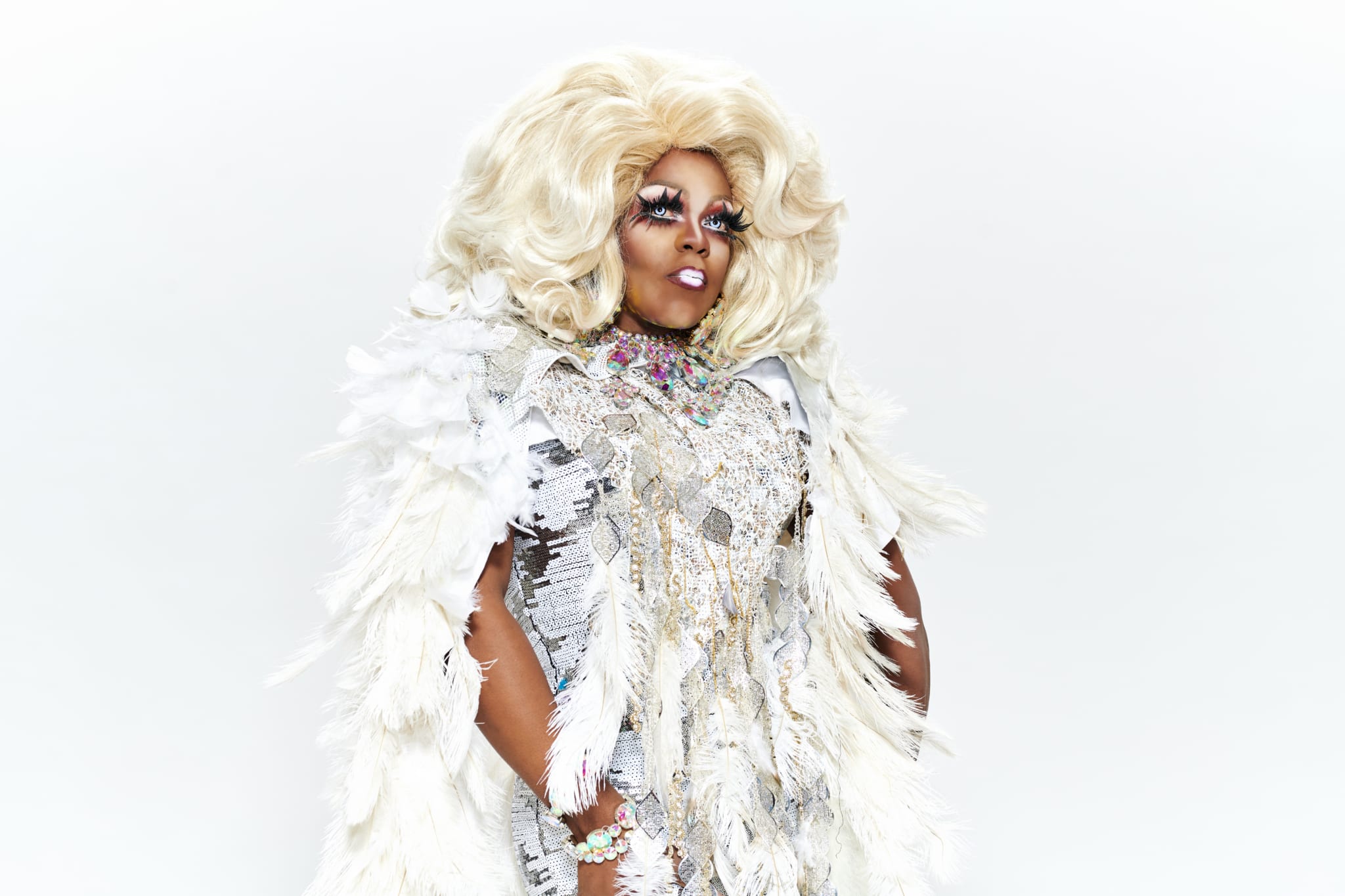Anastarzia Anaquway is in wonderland. The Toronto-based queen pops on our video call against a background of giant mushrooms and wearing a colourful top and a yellow wig decked with a headpiece made up of butterflies. She looks fabulous as she revisits her time on Canada’s Drag Race.
In last night’s episode, the pageant queen lip synced with her friend Tynomi Banks after the judges named the bottom two queens. Anastarzia, unfortunately, got the boot and left the competition with a top 10 finish. We spoke with Starzy—Anastrzia’s nickname—about exposing her vulnerability, representation and the value of loyalty.
What did you learn from your time on Canada’s Drag Race?
I learned not to punch people in the face. I’m only kidding. You know what? I learned something that I’ve known all along: Anything you put your mind to you can do. Absolutely anything.
A lot of challenges were thrown at us. We didn’t know what was about to come our way. Bu, we jumped right in and got ourselves mucky dirty with whatever challenges they presented. Child, no matter what you put your mind to, you can do it.
You came from the pageant scene. How is that different from Drag Race?
It usually takes me about a year to prepare properly for a pageant. A pageant is only one night, maybe two, depending on the number of contestants, and the system that you’re competing for. Drag Race is weeks of challenge, after challenge, after challenge, after challenge. And there’s no comparison to the two. They’re two completely different ends of the spectrum.
On the show, you talked about being a victim of a hate crime before moving to Canada. How did that conversation unfold?
When we’re in the workroom, we don’t plan what we’re going to talk about, someone strikes up a conversation, someone asks a question and the other person answers it. I don’t even remember who it was that asked me, what question they asked, I don’t even remember the question.
“You get to see this uncensored side of us, and this is where you see who we truly are, not as drag queens, but as humans.”
That’s the beauty of Drag Race, and reality TV, you get to see the entertainment aspect of it, you get to see us joke around. You get to see us compete in challenges, we entertain you. But then you get to see this uncensored side of us, and this is where you see who we truly are, not as drag queens, but as humans.
Why is it important to talk about it on a show like Drag Race?
I’ll tell you why through a story. A few days ago, a man sent me a picture of him and his mom. He was a young boy in the picture, and he said, “My mom and I haven’t seen eye-to-eye for a very long time. And after you shared your story, she posted on Facebook something inspirational, something positive about your story.” And he said he messaged her, and they had a conversation. Then he returned to the conversation with me, saying, and these were his exact words, “Thank you Anastarzia for travelling back in time and healing that little boy that was so broken.”
Stories like that, that’s the reason why we tell our stories because we don’t know who was out there and what they may be experiencing. We don’t know how our words, our lives and our stories positively impact the lives of others. That’s why it’s important that we not stop telling our stories.
We also saw your special bond with Tynomi Banks and how you value sisterhood. Why is friendship important to you?
“We don’t know how our words, our lives and our stories positively impact the lives of others.”
It’s not friendship that is important to me, it’s loyalty. Loyalty goes beyond friendship and family, it speaks to a bond. I take loyalty very seriously—very seriously. It’s because of those loyal people that we are able to do the things that we do in our life. They support us regardless of their personal opinions, they support us, sometimes, over a cliff. Loyalty means the world. What is a person without loyalty?
Speaking of Tynomi, you, unfortunately, had to lip sync against her. What was that like?
We had to do what we got to. I’m a pageant queen. And so, of course, I’m going to be competing against friends and my gay family. It just happens, you know. I am a part of the Kiki Ballroom scene, and in the ballroom scene, everyone that I compete with, they’re my friends! It’s just a part of competition.
Looking back at your Drag Race journey, would you do something differently?
Absolutely not. Absolutely not. Even though my final runway, the hair challenge, was supposed to have been something completely different, that I did not have time to execute. I would, child, I’m not doing anything differently. Everything that I’ve done over my entire life brought me to this very moment. Things happen the way they happen for a reason. Point blank. Period.
Now that you’re unfortunately out of the competition, if it can’t be you, which queen would you like to see you win it all?
My sisters are all very talented, and listen, this competition is very unpredictable. I thought I would end up in the top three, and look at me, sitting here with my eliminated ass. So clearly, the competition is very unpredictable and it plays on everyone’s strengths and weaknesses. To say I have a favourite, I don’t. I love them all and just may the best woman win.
What’s next for you?
Ah, child, I’m going on tour. I don’t care what anybody says, I’m going on tour. Like, they’ll have to deal with it, but I’m going on tour. Where? I don’t know yet, but I’m going on tour. Ultimately, I want to get back to my pageant roots. That’s what brought me to this moment, that’s what I love. Pageant is how I started drag. Please can I just go to a pageant? I don’t even need to compete, I just want to watch, please. I just miss it, this [pandemic]… child.
To end the interview, what’s one word to describe your time on Canada’s Drag Race?
Phenomenal. Absolutely, phenomenal. There are no real words to describe it because it’s a life-changing experience. It’s a once in a lifetime experience that not many people get, and I’m truly grateful to have walked the journey and the path that I walked.
This interview has been edited and condensed for clarity.


 Why you can trust Xtra
Why you can trust Xtra


